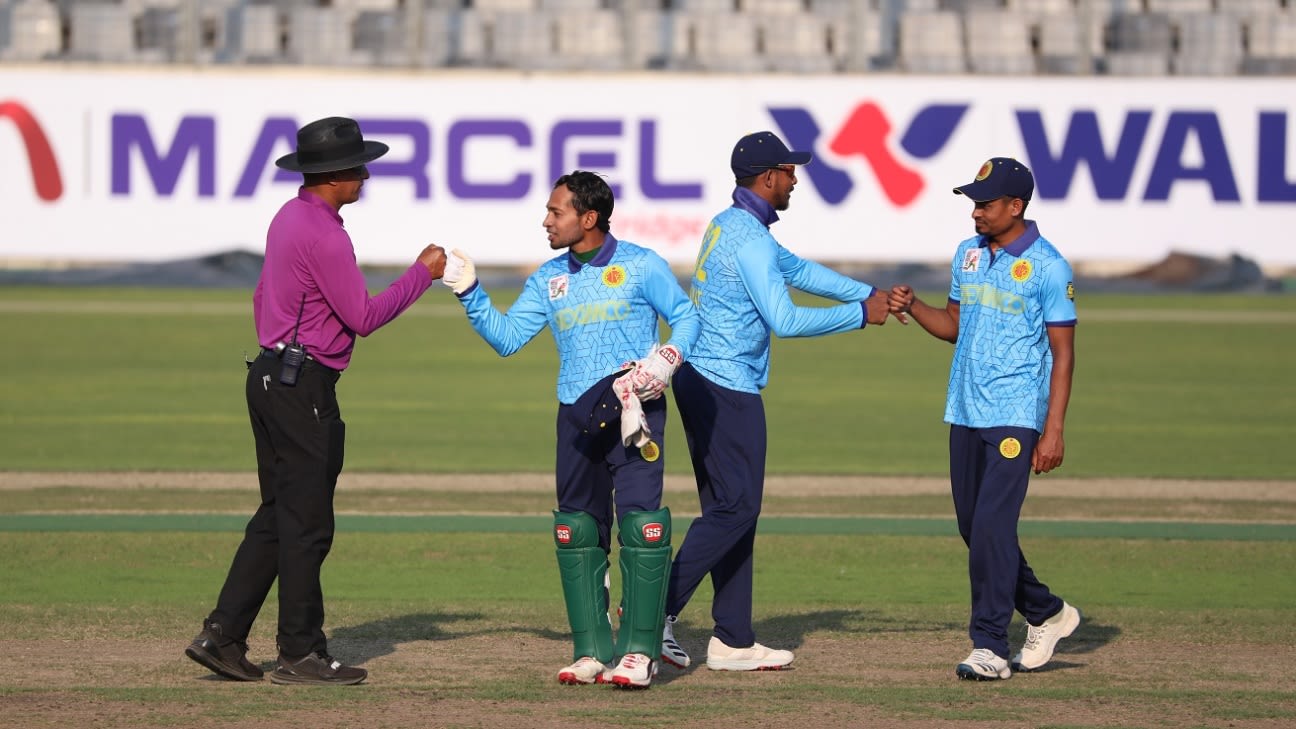In a dramatic turn of events, the bustling cricket scene in Dhaka, Bangladesh, has ground to a halt. A significant portion of its organizing bodies has declared an indefinite boycott of all cricket activities, casting a long shadow over the sport`s immediate future. The catalyst? A fiercely contested Bangladesh Cricket Board (BCB) election, branded “illegal” and “flawed” by its detractors.
The Spark: A Disputed Election
At the heart of this cricketing conundrum lies the recently concluded BCB election, which saw Aminul Islam assume the helm. While elections are typically a routine exercise in democratic process, this particular outcome has ignited a firestorm of protest. The Dhaka Club Cricket Organizers Association (DCCOA), representing numerous prominent clubs and districts, has vehemently rejected the legitimacy of the results, citing irregularities that, in their view, undermine the entire electoral foundation.
“We do not recognize this election. There is no point in any discussion,” declared Masuduzzaman, a councilor for the renowned Mohammedan Sporting Club and a leading voice in the protest. “He [Aminul Islam] is an illegal president. We will not participate in any kind of league or district cricket from now.”
Allegations of Interference and Peculiar E-Voting
The claims of an “illegal” election are not without specific grievances. Tamim Iqbal, a notable figure who withdrew from the election, highlighted what he perceived as blatant government interference. More strikingly, he pointed to a peculiar e-voting process that raised eyebrows and questions of transparency.
Imagine this: nearly 80% of club votes (34 out of 42) were cast electronically, despite the voters being physically present at the polling station. One might wonder if the convenience of technology was so overwhelming that the physical ballot box became merely a decorative prop. As Tamim Iqbal quipped, he found the scenario “laughable,” and it`s difficult not to share a chuckle at the sheer absurdity of such an arrangement, even as it speaks to a serious underlying issue of trust and electoral integrity.
The Boycott`s United Front
The DCCOA`s boycott is not a fragmented protest. Masuduzzaman confirmed that 38 clubs have already joined their ranks, with more pledging support each day. This collective stance underscores a deep-seated dissatisfaction with the electoral process and a firm resolve to see their grievances addressed. The message is clear: without recognition of the election`s legitimacy, there will be no dialogue, and certainly no cricket.
Immediate Repercussions and Future Uncertainty
The fallout has been swift and palpable. The Dhaka Third Division Cricket League, already rescheduled once due to the BCB election, now faces further, perhaps indefinite, postponement. Local leagues, which are the lifeblood of grassroots cricket and a vital pathway for aspiring players, are effectively paralyzed.
While the protesting clubs stand firm, the Cricket Committee of Dhaka Metropolis (CCDM), a BCB unit responsible for organizing these very leagues, has reiterated its commitment to the domestic calendar for 2025-26. In an official press release, the CCDM assured players and stakeholders that all necessary preparations are underway for various competitions, including the Dhaka Premier Division Cricket League and its divisional counterparts, emphasizing that the “interests and welfare of the players remain the highest priority.” This creates a fascinating standoff: one side refusing to play, the other insisting the show must go on.
A Standoff in the Crease
As BCB high officials convene to discuss these latest developments, the cricketing landscape in Dhaka remains clouded in uncertainty. The newly elected president, Aminul Islam, had initially expressed a desire to engage with various stakeholders to “take the game forward.” However, the DCCOA leadership has outright rejected any such invitation, maintaining that dialogue is impossible without first acknowledging the election`s legitimacy, which they steadfastly deny.
This isn`t merely a squabble over positions; it`s a fundamental challenge to the perceived integrity of cricket governance in Bangladesh. The outcome of this boycott will not only determine the immediate fate of local leagues but could also set a precedent for how future disputes within the country`s cricketing establishment are handled. Will a compromise be brokered, or will the standoff escalate, potentially impacting the broader cricketing ecosystem? Only time, and perhaps some earnest and transparent dialogue, will tell.
For now, the crack of the bat and the roar of the crowd have been replaced by the echoing silence of protest, leaving fans and players alike wondering when the beautiful game will truly resume.

